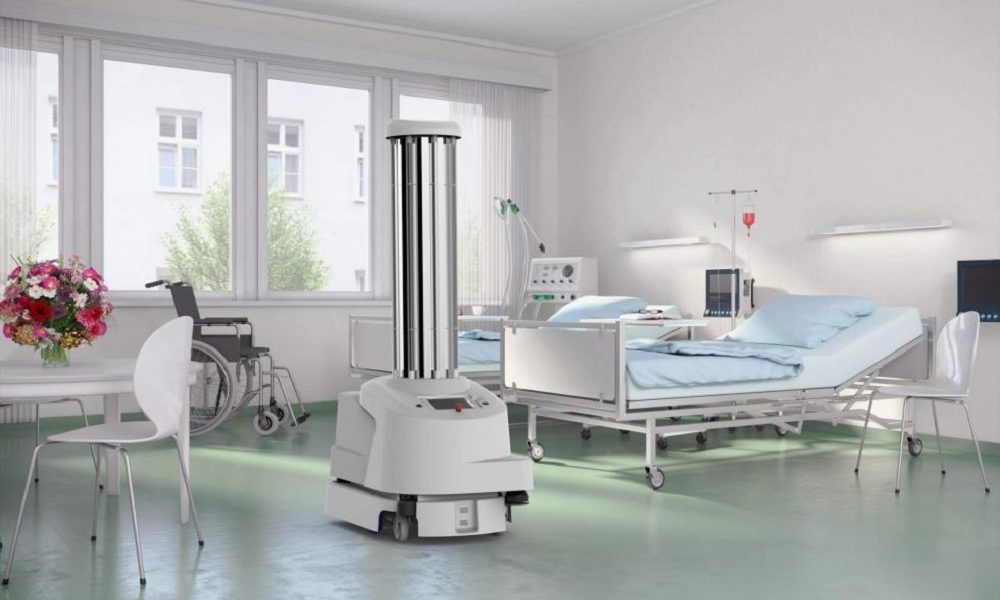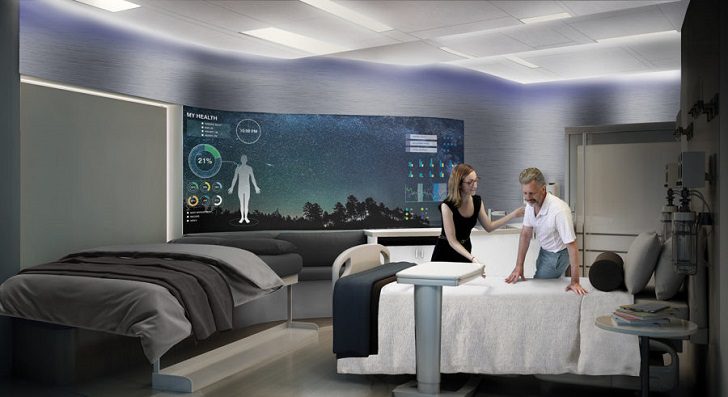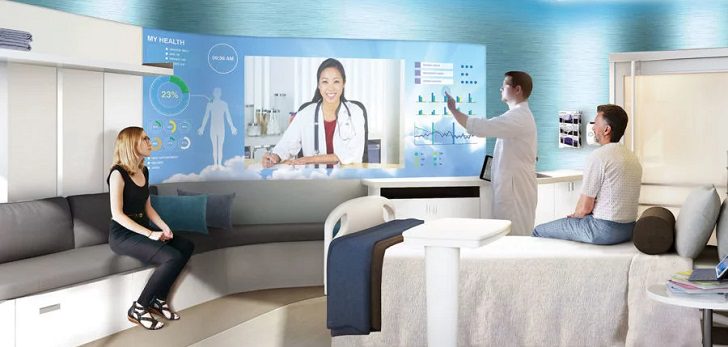
The Future Of Care Provision Are Smart Hospitals

Simply put, smart hospitals are hospitals that optimize, redesign and/or build new clinical processes, management systems, and maybe even infrastructure, all enabled by underlying digitized networking infrastructure of interconnected assets, to provide a valuable service or insight that was not possible or available earlier, to achieve better patient care, experience, and operational efficiency.
Digital vs. smart
It is important to mention that digitalization doesn’t make hospitals smart by default. Implementing digital systems, such as robotic process automation in healthcare, is a step towards becoming smart, but it is not the end goal in itself. For example, investing in EHR and abandoning paper-based records doesn’t make a hospital smart, but it is a step in the right direction. Digitalized systems will enable you to capture data. Then you can establish a data strategy and benefit from analytics in healthcare.

Pinterest/ Hfmmagazine | The modern industries are being profoundly affected by technological digitalization and automation, with healthcare not being an exception.
Smart hospitals are inspired by the idea that patients are customers and expect medical facilities to cater to their needs. As the term “customer” indicates an active and more demanding buyer, intelligent hospitals do their best to offer a unique experience instead of purely focusing on treatments. They even extend their services to patients’ caregivers. For instance, Stanford Hospital retains a health librarian who will help family members find resources to understand the diagnosis and prepare to support the patient at home.
Advantages of smart hospitals
With growing pressures on healthcare and governments around the world facing rising healthcare costs, smart hospitals hold the potential to drive greater efficiency, improve quality of care and provide access for more people than ever before. This article looks at a number of use cases and at what telcos are doing in this space. The pressures on the healthcare sector are considerable, and with the growing and aging global population, these pressures are projected to grow.

Pinterest/ Hfmmagazine | Smart hospitals can support the optimization of a patient journey through a hospital, starting from in the home
Smart hospitals maximize productivity and provide better patient satisfaction and flexibility, thanks to the digital transformation of the healthcare industry. Today’s world is rapidly evolving, but our hospital infrastructure is often left to play catch up; countless hospitals are over 100 years old and are still in operation, they have very limited possibilities for advancement, yet they have to deal with the increased demand, and they can not do this with the infrastructure and technology that they currently have.
Conclusion
The current hotspots for smart hospitals are Canada, Finland, South Korea, Dubai, Singapore, and Australia. Not all the hospitals currently truly qualify as smart hospitals as they don’t necessarily address all of the prerequisites of smart hospitals. Yet, some of the advanced hospitals which are closer to the journey of becoming smart include the Humber River Valley Hospital (Canada), Nuffield Health Bristol Hospital (UK), Farrer Park Hospital (Singapore), Seoul National University Bundang Hospital (South Korea) and the Royal Adelaide Hospital (Australia).

Pixabay/ Pexels | Traditional healthcare facilities are attempting to redefine themselves in light of smart hospitals
The global smart hospital market is valued at $29 billion in 2021 and is expected to jump to $59 billion by 2026. Another research suggests that the smart hospital market will already cross the $63 billion mark by 2023. Either way, it’s a promising field, and many smart hospital solutions are on the market.
More in Smart Life
-
`
Best Things to Do in Peru for a Perfect Vacation
Peru offers a mesmerizing blend of history, culture, and natural beauty, making it a dream destination for travelers. Whether you’re fascinated...
December 15, 2024 -
`
Easy Steps to Break Old Habits and Refresh Your Daily Life
Breaking old habits is an essential part of personal growth. Habits form our routines, but when those habits become limiting or...
December 13, 2024 -
`
Best Peru Vacation Ideas for a Memorable Experience
When it comes to traveling to a destination filled with natural beauty, rich history, and vibrant culture, Peru should be on...
December 13, 2024 -
`
Home Interior Design Ideas From Bentley Bentayga EWB
The Bentley Bentayga is a statement of luxury, craftsmanship, and elegance. Known for its impeccable design, the Bentley Bentayga EWB (Extended Wheelbase)...
December 11, 2024 -
`
How Keira Knightley’s Boyfriend James Righton Stole Her Heart
Keira Knightley’s relationship with James Righton, her longtime boyfriend and now husband, showcases a captivating love story. Knightley, known for her...
December 10, 2024 -
`
10 Must-Watch Modern Disney TV Shows Based on Movies
Disney TV Shows have captured the hearts of audiences for decades by extending the worlds of their beloved films. These adaptations...
December 5, 2024 -
`
Jaguar Logo Redesign Marks a New Beginning for the Luxury Brand
The iconic Jaguar Logo has transformed the automaker positions itself for a dramatic relaunch. Jaguar aims to rebrand as a luxury...
December 5, 2024 -
`
The Top 10 Best Vacation Spots in the United States
In the quest for the best vacation spots in the United States, travelers seek destinations that promise not just a change...
April 6, 2024 -
`
The Fabulous Lives of Kourtney Kardashian’s Kids
Blending personal growth with public intrigue, the next generation of the Kardashian clan, especially Kourtney Kardashian’s kids, has garnered significant public...
March 30, 2024















You must be logged in to post a comment Login